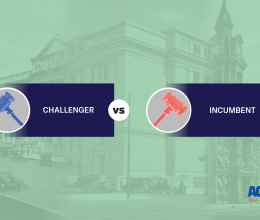In 2012, Ohio made history as the first state to ever sell a publicly owned prison to a for-profit company, and now it’s poised to do the same again. In a play of legislative sleight of hand, politicians amended the sale of the North Central Correctional Institution in Marion, Ohio, into an unrelated bill just before summer recess and passed it without any chance for testimony, public discussion, or media coverage.
Such sneakiness is extremely disappointing, and not at all how we should expect our elected officials to conduct business. It’s not altogether surprising either. Given how badly Ohio’s first experiment with selling a state prison went, it’s no wonder that legislators want to keep this out of the public’s gaze.
When Ohio sold Lake Erie Correctional Institution to Corrections Corporation of America, corporate officials were eager to capitalize on the sale—not just in Ohio, but around the nation. In a letter to nearly every governor, CCA characterized the transition as “seamless” and offered to talk to states who would be interested in selling their prisons to CCA.
Unfortunately, reality was not much like what CCA was advertising.
A Raw Deal
The contract was bad from the very beginning when CCA was able to negotiate a provision in its contract that they would be paid for 90-percent capacity, whether those beds were filled or not. To maximize their profits, CCA added 300 new beds to the prison by moving bunk beds closer together and converting recreation rooms to sleeping space. Space became so cramped that prisoners in segregation—otherwise known as solitary confinement—were housed three to a cell with the third prisoner sleeping on the floor. Prisoners had no access to running water, with a state auditor finding some who were forced to use plastic bags to defecate.
This is effectively a warehouse of people, where CCA is making profit off the imprisonment of people in atrocious conditions.
It’s Marion’s Turn
Watch Prisons for Profit documentary. Read "Prisons for Profit: A Look at Prison Privatization" report.
And now, Ohio is ready to go down the same path all over again. The similarities between Lake Erie and North Central prisons don’t end there. Lake Erie was already privately operated by Management and Training Corporation prior to its sale to CCA. North Central is also operated by MTC, and we do not know who will inevitably purchase the prison.
If you don’t think it matters if a prison goes from just privately-operated to privately-owned, think again.
Selling the land and prison to a for-profit corporation often means a lot more work for local law enforcement. At Lake Erie, the first few months under CCA’s reign was filled with chaos because Ohio law was unclear whether the tiny local police department or the state highway patrol had jurisdiction to investigate felonies inside the prison. Eventually, state law was changed to put that responsibility on the highway patrol, as it is in state prisons, but the local police department had to continue monitoring the perimeter of the prison.
Crime was rife around and inside the prison. In only its first year, the local police department received nearly 250 calls about crime, compared to 157 such calls in the first 11 years the prison was in operation combined. People would regularly throw duffel bags filled with contraband over the prison fence. Drugs were so prevalent that two prisoners overdosed on heroin, with one dying. With only a tiny police force, this added cost was nearly crippling for local officials.
Making Money Off of Human Misery
When a for-profit prison company owns a prison, taxpayers are also locked into a bad deal much longer. By selling the actual land and prison to the corporation, it becomes much more difficult for Ohio or any other state to cancel a contract and get their property back. Supposedly, there is a mechanism in the law that allows Ohio to get the prison back, but it’s never been tested and could be costly and end up in litigation.
But here’s the real problem with selling a prison to a for-profit prison corporation: it further entrenches into our justice system the idea that it is perfectly acceptable to monetize prisoners. This is simply toxic to any Americans’ notion of fairness and compassion. Our nation is already addicted to incarceration with more people, particularly those of color, warehoused for low-level nonviolent offenses that would have never been criminalized decades ago.
For-profit companies only care about the bottom line, and they make their revenues off of having more people in prison. If we are to ever reduce the number of people in prison, allowing profit to guide our justice system will continue to be an impediment.
Ohio is moving in the wrong direction, and other states must take notice and say no to prisons for profit.









